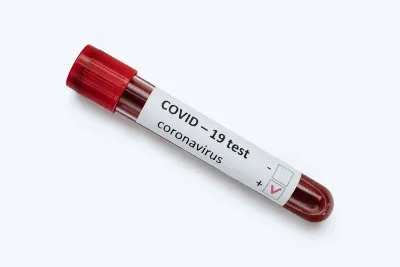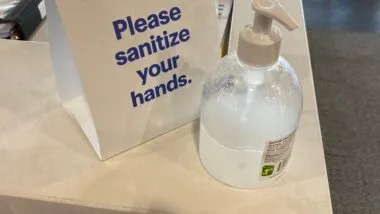After the deaths of over 30 residents who contracted coronavirus, the Good Samaritan Society class action lawsuit claims that the Alberta senior home failed to properly respond to the outbreak.
The plaintiffs include residents and family members of residents. They claim the Edmonton-based Good Samaritan Society senior care home was negligent in its response to the COVID-19 outbreak.
Specifically, the plaintiffs say Good Samaritan Society administrators failed to properly care for residents, leading to the unnecessary spread of the disease. Further, the home was negligent in the care of residents who contracted COVID-19 and died as a result, the class action lawsuit alleges.
“Had [Good Samaritan Society] met the minimum standard of care expected of Alberta long-term care communities, they would have been able to mitigate the spread of COVID-19 and ultimately lessen the impact of COVID-19 to their residents,” the complaint states.
According to the class action lawsuit, Good Samaritan’s negligence began with its failure to prepare for a possible outbreak in the facility.
Seniors are particularly susceptible to developing severe and even deadly complications if they contract COVID-19.
A lawyer representing the plaintiffs told CBC News reporters that Good Samaritan failed to implement proper isolation procedures at the outset of the pandemic and the problems only compounded from there.
“At the end of the day this is someone’s home, and they’re paying to be there so they’re entitled to safety,” he told reporters. “I think safety measures have failed, and the sheer volume of people affected? That’s where the problem arises.”
The class action lawsuit accuses Good Samaritan of putting profits before the standard of care, leading to hundreds of residents and staff contracting the disease and, as of Sept. 5, 2020, the deaths of 32 residents after they contracted COVID-19.

For its part, Good Samaritan told CBC News it cannot comment on pending litigation.
Reportedly, the senior home has partnered with provincial health services to stop the outbreak and currently tests residents and employees two times each day.
Global News reports that of the 184 residents of Good Samaritan, a total of 79 contracted the disease; 40% who caught COVID-19 died from it.
Class Action Lawsuits Filed Over Nursing Homes’ Handling of Coronavirus
The Good Samaritan Society class action lawsuit is one of many alleging senior homes failed to properly prepare for the outbreak and care for residents who contracted COVID-19.
Lawsuits have been filed across the country, including one spanning care homes in Nova Scotia.
Plaintiffs in the Northwood long-term care COVID-19 class action lawsuit contend the Halifax-based homes mishandled the outbreak by allowing residents to share rooms during the outbreak and failing to provide sufficient staff to care for the ill.
The class action was expanded to include the Nova Scotia government, alleging a lack of oversight allowed problems to continue.
Several additional senior care home COVID-19 class action lawsuits have been filed against Sienna Senior Living Inc., the operator of a number of facilities. These class action lawsuits seek over $100 million in damages from Sienna over allegations that the operator failed on many levels to handle the outbreak.
Sienna Senior Living is accused of failing to screen staff for coronavirus, as well as not providing proper protective equipment to staff and residents and failing to separate ill residents from the general population.
Ontario Launches Commission Investigating COVID-19 Response
The residents of many nursing homes in Ontario have suffered severe effects from the pandemic, including a high death rate.
As a result, the province has put together an independent commission to investigate how the coronavirus outbreak was handled by care facilities and government oversight agencies.
Experts Speak Out About Canada’s Long Term Care Problems
According to one expert who interviewed with Top Class Actions in July, the problems experienced by Canada’s long-term care system during the COVID-19 outbreak stem from policy and practice issues that were already present in the system.
“Long-term care homes don’t hire full time staff; they hire contract workers, whom they don’t pay nearly enough and who have to work in a number of facilities to make ends meet,” Sharon Sholzberg-Gray C.M. told TCA. “This is how COVID-19 spreads.”
Have you lost a loved one living in a senior home to COVID-19? Share your story in the comment section below.
The lead plaintiffs and proposed Class Members are represented by Basil Bansal.
ATTORNEY ADVERTISING
Top Class Actions is a Proud Member of the American Bar Association
LEGAL INFORMATION IS NOT LEGAL ADVICE
Top Class Actions Legal Statement
©2008 – 2026 Top Class Actions® LLC
Various Trademarks held by their respective owners
This website is not intended for viewing or usage by European Union citizens.















